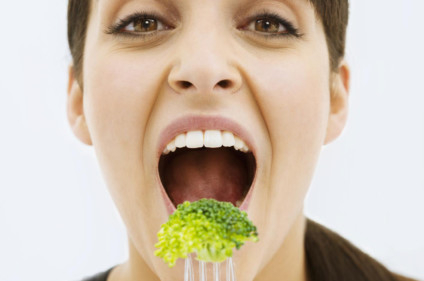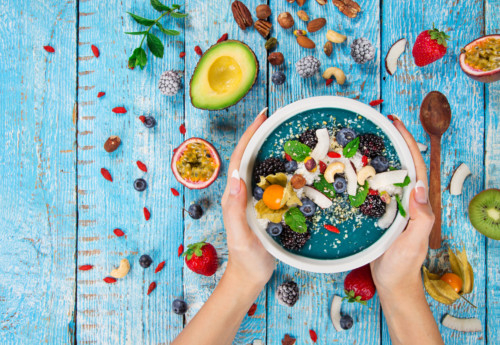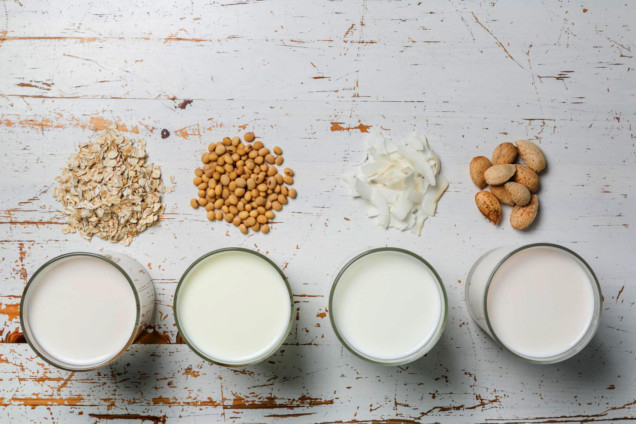
As the (now former) editor of Waitrose Food magazine has found, to his peril, a misguided joke in the world of veganism is akin to a drop of blood in a pool of sharks.
William Sitwell’s crime — which has now cost him his job on the magazine for which he worked for nearly 20 years — was to disparage vegans in an email to freelancer Selene Nelson, who had pitched the idea of a plant-based meal series.
“How about a series on killing vegans, one by one?” Sitwell suggested. “Ways to trap them? How to interrogate them properly? Expose their hypocrisy? Force-feed them meat? Make them eat steak and drink red wine?”
Nelson chose to leak the email exchange online and the vegans came on the attack with all the recoiled ferocity of a rubbery slice of dairy-free cheese.
But there was one vegan angle that Sitwell forgot to mention — namely, investigating the dizzying number of splinter groups out there patrolling the internet and supermarket aisles.
According to the annual food and drink report, released on the day of Sitwell’s dismissal, by (ahem) Waitrose, one in eight Britons is now vegetarian or vegan, with a third of British consumers deliberately reducing the amount of meat they eat or removing it from their diet. World Vegan Day, which was yesterday (on Thursday), has now spawned into World Vegan Month. The UK meat-free market is set to reach 1.1 billion pounds by 2023.
I am a recent convert, too. After ditching meat two years ago, I frustrate friends and family alike with my avowed pescetarianism. Yet my preferred option is just one of many labels attached to meat-dodging.
It all used to be so simple in 1944 when Donald Watson, the founder of the Vegan Society, called a meeting to discuss a new movement of non-dairy vegetarians. They alighted on “vegan” as the word was formed from the first three and last two letters of “vegetarian”. And, for a while, that was that.
But modern veganism comes in many shades. Some, they argue, are “greener” than others.
—
Veclams
Oysters do not have a central nervous system and therefore feel no pain. For some vegans, this means open season on molluscs — but by no means all.
In 1975, Peter Singer argued in his book, Animal Liberation, that a fair place to draw a line between animals with a serious enough probability of pain is “somewhere between a shrimp and an oyster”.
For veclams (vegans who eat oysters), suggested servings include pairing them with a guilt-free pint of Guinness (in 2017, its brewers finally removed fish bladders from the draught stout’s recipe, although bottles still contain it). Vegan wine is also a booming business.
Virtue vegans
You know one. Quite possibly, you are one. Seen bragging loudly in restaurants over a side order of steamed kale about the joys of their plant-based diet and comfort of their vegan Birkenstocks. Also seen in late-night kebab shops, dispensing 4.80 pounds from their faux-leather wallet for a large doner with chips.
One-dayers
A more serene version of the virtue vegan. Has watched Blue Planet II and knows octopuses are brainier than your average FTSE100 exec and that the expansion of animal agriculture is rapidly gobbling up the last wildernesses on earth. But, at the same time, they still can’t quite shake the visceral hankering of a good steak. So they stress to themselves, and others, that they will only touch meat only once a week. In truth, who’s counting the bacon sarnies?
Lacto-vegans
A subsection of the plant-based community for whom eggs — and, of course, meat — are out, but dairy products are in. Have you tried vegan cheese? For many, “cheddar” blocks sculpted from coconut oil, pea protein and soy-milk remain a bridge too far.
Raw vegan exponent Gwyneth Paltrow once said she would rather smoke crack than eat “cheese out of a can”... but is an advocate of cashew cheese, a dairy-free alternative you can whip up in a blender from raw nuts and nutritional yeast.
Flexigans
Selective veganism is the way many of us seem to be heading. You are vegan, aside from certain situations. By cutting down on the amount of meat, fish and dairy you consume, you are helping mitigate the environmental impact of our food and eating more healthily, yet you don’t alienate too many people with your self-important dinner requests.
The downside is you will never be accepted by true believers. Following one recent article espousing the benefits of being a so-called flexigan, the writer was dismissed by some in the online vegan community for being “lazy”, disingenuous and practically complicit in animal slaughter. And those were among the more publishable critiques.
“You can’t please all of the people all of the time,” Abraham Lincoln once said. But you can eat less meat some of the time.
Veggans
Also known as ovo-vegans, they follow a meat-free and dairy-free diet but will eat eggs, although only free-range, and preferably still warm from being popped out by a rescue hen clucking about at the bottom of the garden. Vegganism is seemingly straightforward, but not without its controversies.
In 2005, India’s National Egg Co-ordination committee used a picture of Mahatma Gandhi on its leaflets as a “brand ambassador”, even though the Indian activist was an avowed vegetarian whom the vegan world now claims as its own. In the ensuing furore, the committee dug out an old pamphlet written by Gandhi in which he supposedly claimed it was OK to consume “sterile” eggs as they did not constitute flesh.
Pure vegans
These are the hard-core: no meat, no dairy, no fish, no leather belts or bags. Their sofas and house paint are free of animal products. Their toothpaste contains no glycerine derived from beef or pork meat. And no, they would not like any honey in their tea, thanks very much.
According to the Vegan Society, harvesting honey “does not correlate” with its definition of veganism, which seeks to exclude not only cruelty but also exploitation. Honey is harvested by bees, for bees, the argument goes, and by taking it for ourselves we are therefore exploiting the insects.
Natalie Portman is a figurehead of pure veganism. So, too, is singer Miley Cyrus, who became a strict vegan following the death of her dog, Floyd, in 2014 and has been commended by Peta for the zeal of her conversion.















